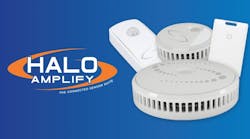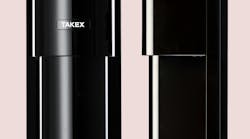A new report released Thursday by ABI Research predicts that shipments of home automation systems will dramatically increase over the next several years, reaching over four million in 2013.
The biggest reason for the expected increase, according to Sam Lucero, senior analyst for ABI research, can be attributed to the growth that is being seen in two relatively new market segments within the industry which are mainstream systems and managed service systems.
In the past, the home automation market was primarily made up of niche segments, Lucero said. On one side there was what Lucero refers to as the "CEDIA" dealers, who focus on installing custom, luxury home automation systems for high-end applications. In contrast to these custom systems, there has also traditionally been a "do-it-yourself" market for hobbyists who buy various home automation devices and install them on their own.
"What’s really been missing in home automation is a vast mainstream market base and that’s really what these mainstream technology vendors are trying to target with what they’re doing, to bring that luxury side of it and whole home automation (to consumers) at price points and installation costs that are more of a fit for the mainstream market," Lucero said.
The ABI Research analyst added that they also expect to see a big increase in the managed service system market in which companies, predominantly those in the broadband and telecom industries, will add home automation in a package of bundled services to their subscribers.
"We think that most major broadband service providers are looking at this kind of functionality and we think many security system providers are looking at this too," he said. "It’s a way to increase revenue, increase subscriber loyalty and with the relationships they have, their ability to reach a large customer base, to educate the subscriber base and to market systems that are relatively inexpensive, we think this has a lot of potential."
Another reason that the sale of home automation systems will likely improve is due to that fact that these new mainstream systems are much cheaper than the custom ones installed in high-end applications.
Compared to custom made systems which could cost a minimum of $30,000, Lucero said that many of the new mainstream systems range in price from $5,000 to $15,000.
Though the research was done between November and January and didn’t take the recent housing slump into account, Lucero said that the more likely reason that home automation systems wouldn’t sell would be due to consumer’s unawareness of the technology.
"[The mainstream home automation market is) so new, so emergent… the bigger barriers to it are simply that people don’t know about it, it’s not that it’s out there, people know about, but people are making a decision to not select it because of a downturn," Lucero said. "It’s just at that very extreme early stage of the market."
Greg Rhoades, web marketing for Home Automation Inc., said that they have also not seen, nor expect a significant downturn in demand for their products because of the slow housing market.
"We have not taken too much of a hit and luckily, because we are worldwide, we kind of feed off our other businesses as well," he said. "Some regions in the United States have seen a significant decline in sells, but others are steady or even rising."

